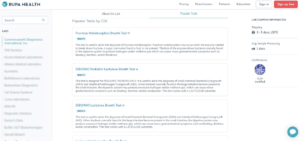Each month, the CDI team rounds up some of the latest #GIcommunity research, news, and trends and highlights how they impact functional GI diagnostics and treatment of patients worldwide.
This month, our roundup features a new study on IBS prevalence in Veterans and other PTSD patients, a Q&A on trending gut health hacks, and a peer-review article on IBS-type symptoms in IBD patients.
The Prevalence, Humanistic Burden, and Healthcare Impact of Irritable Bowel Syndrome (IBS) Among United States Veterans
In a new study published online in Clinical Gastroenterology and Hepatology, a research team led by Dr. Andrea Shin, Indiana University School of Medicine, sought to describe the prevalence of IBS and other GI problems in a sample of veterans with posttraumatic stress disorder (PTSD) and to investigate the connections between GI symptoms, the severity of PTSD, depression, and the number of previously reported traumatic events. Researchers stated that IBS in Veterans and other PTSD patients are widely understudied. More than 28% of veterans met the Rome IV IBS criteria and had a higher association of psychological comorbidities (anxiety and depression), multiple doctor visits, hospitalizations, and infective enteritis.
'Does your gut even need healing?': Dietitian debunks myths in trending gut health hacks
Healio Gastroenterology recently interviewed Christine Randazzo Kirschner, MS, RDN, CDN, co-founder of Amenta Nutrition in New York, on the widespread social media trends related to #guthealth and #guthealing. “Don’t believe all the hype,” Randazzo Kirschner told Healio. The Q&A article tries to help debunk untruths surrounding gut health and combat misinformation that could lead to serious health problems. Randazzo Kirschner speaks about the role of the gut microbiome, foods that promote a healthy gut, and advice for spotting common misconceptions.
Natural history and impact of irritable bowel syndrome-type symptoms in inflammatory bowel disease during 6 years of longitudinal follow-up
A research team, led by Keeley M. Fairbrass, Leeds Gastroenterology Institute, St. James’s University Hospital, assessed the long-term natural history and impact of IBS-type symptoms on outcomes in inflammatory bowel disease (IBD) in patients of secondary care. According to the study, “IBS-type symptoms affected more than two-thirds of patients with IBD during >6 years of follow-up and were associated with increased healthcare utilization, and worse anxiety, depression, somatoform symptom and quality of life scores, but not adverse disease activity outcomes.”
CDI In the News
CDI Expands Access to Naturopathic & Integrative Medicine Community Through New Partnership with Rupa Health



